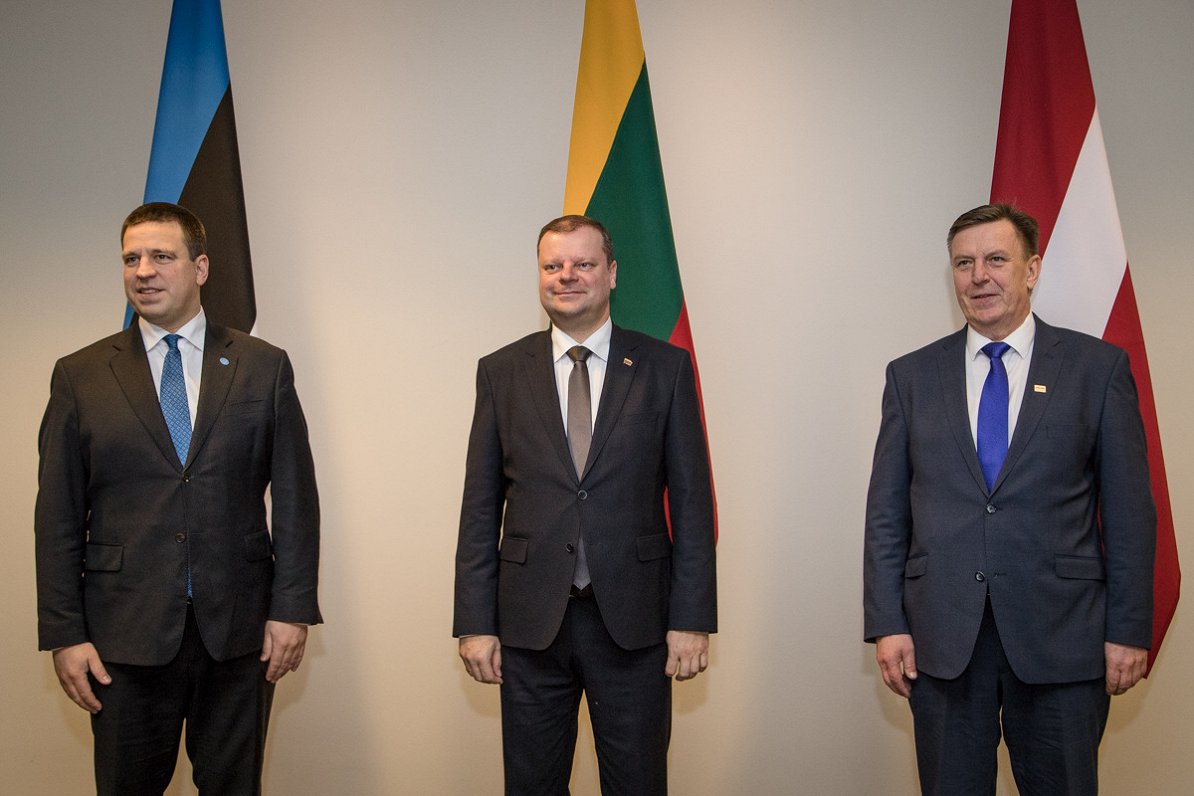During a meeting of the three leaders Kucinskis, plus Prime Minister of Estonia, Jüri Ratas and Prime Minister of Lithuania Saulius Skvernelis discussed safety issues, the European Union's (EU) multiannual budget for the years 2021 to 2027, as well as the Rail Baltica infrastructure project.
Addressing security issues, Mr Kucinskis pointed out that, in response to the current security situation and contributing to collective security, the Baltic States have all reached NATO's recommended minimum of spending 2% of gross domestic product (GDP) on defense.
“I appreciate the commitment of our three defense ministers to try to raise funding even more,” Kučinskis was quoted as saying in a release from his office.
However, the Baltics were not enthusiastic about suggestions that a fully integrated European Army should be formed, he said.
"We need to cooperate as much as possible so that we can present joint Baltic projects. It is also important to support the interests of our defense industry. At the same time, we are very wary of the idea of forming a European Army and EU Security Council. I believe that these proposals are not fully formed and should be discussed first among all EU Member States," Kučinskis said.
He stressed that the main collective defense organisation in Europe remains NATO, and the EU's efforts to strengthen itself should complement NATO membership, not run in parallel. The prime minister cited the presence of NATO's enhanced Forward Presence (eFP) battlegroups on Baltic soil as evidence of the crucial role NATO continues to play.
It was also agreed to devote special attention to the implementation of coordination on air defense.
Kučinskis pointed to the need to strengthen cybersecurity. The cooperation of the Baltic States on cyber security needs to continue in an "active" way via sharing information on major incidents, coordinating visions of cybersecurity policy and promoting the resilience of cyber security, along with partner countries in the EU and NATO, Kučinskis added.
On the subject of the 6 billion euro Rail Baltica project, the three leaders agreed that it would become a "permanent" item on their future agendas.
"Baltic Prime Ministers agree to make @RailBaltica a permanent item during their meetings & to implement by 2026 with all ?????? Baltic countries to shoulder their responsibilities in unity." - DG Hololei with Baltic Prime Ministers. pic.twitter.com/w7oIZQt0JR
— EU Transport (@Transport_EU) December 17, 2018
According to a Lithuanian government press release, "The clock-changing practice has also been discussed. In consideration of the public opinion on stopping the practice of clock-changing, Lithuania has played an active role on the EU level. It is expected that decisions at the EU level will be taken in 2021 and that the clock-changing practice will be stopped. It has been agreed with the Latvian and Estonian Prime Ministers to coordinate the joint actions related to the time zone and to look for a common solution in the future."





























